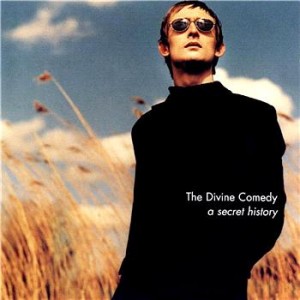
The One And Only Divine Comedy Compilation Released So Far Has Been "A Secret History" (1999).
This compilation was released in 1999, at a time in which the band led by Neil Hannon was as much in the public eye as it had ever been in the critics’. The last two albums (“Casanova” and “Fin De Siecle”, issued in 1996 and 1998 respectively) had been a breakthrough in terms of overcoming the commercial apathy that had always surrounded this exuberant chamber pop outfit. It was the right moment to show those who began listening then just what had been the genesis of that sound – something that (for the most part) was nothing but a well-kept secret.
As a result, this 17-track compilation brought together all the recent hits and quasi-hits along with fan favorites and some new songs, remixes and rerecordings.
The major successes the band had (in terms of sales, at least) were featured in their original versions. Those included “Something For The Weekend”, “The Frog Princess”, “Becoming More Like Alfie” and “National Express”. Of those, the best-known cut must be “Something For The Weekend” (it hit number 13 upon its release). I personally did never like the song that much, as I find it too facile – it has a lot of charm but not a lot of depth. It represents the one facet of the band that the general public could like more easily – but it does so at the expense of the other.
Songs like “Everybody Knows (Except You)” combined intellectuality and sass far better, whereas “The Summerhouse” and “Tonight We Fly” (from the conceptual album “Promenade”, a record that told the story of two lovers spending a day by the sea) showcased Hannon at his most yearning and approachable.
For it part, “Songs Of Love” will always remain one of the most authentic examples of baroque pop in existence, with its mellifluous harpsichord and ornate lyrics where the link between the pursuit of artistic beauty and carnal satisfaction is wryly analyzed. Continue reading
